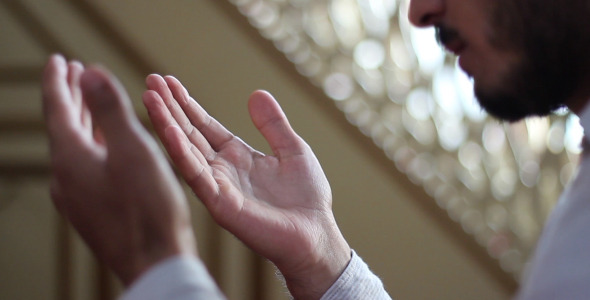In the Catholic school that I had the fortune of attending as a child, not much kept my attention.
Between the boredom of math and science classes, religion and recess where the only things that I found of any interest.
Lessons about the saints were a particular wonder to me. It was like stories of superheroes who could leap over ignorance and evil in a single bound, and most met tragic ends.
Saints lives made for good entertainment. I never thought of them as real people who actually struggled, but as people with some kind of supernatural fortitude, a fortitude that regular people didn’t or couldn’t have. They had some magical property called virtue.
As I got older and learned the meaning of the word virtue, I still thought of it something you either had or didn’t have. Like being short or tall, you were just made virtuous or not.
That was until I realized virtues can be something you teach yourself in tough situations. Sure some people are just naturally very patient without ever having to exercise patience. But most people need to be exposed to the fire in order to train themselves to have virtue.
This is when the saints lives started to have real meaning to me. And even though I converted to Islam and didn’t view them as holy any longer, I still had/have a lot of respect for those people who lived and breathed and dealt with the life they were given with faith and virtue.
Many virtues are good to have when dealing with others. But some virtues are for the good of our own inner lives.
Some virtues give us inner peace. The virtues of Rida (contentment), Tawakul (trust in God), and Love for Allah are all avenues to inner peace.
We can start learning how to implement these virtues into our lives by looking to exemplary people who have reached ultimate rida, tawakul, and love for Allah. And understanding their humanness will help in our understanding that inner peace is attainable for us all.
Maryam’s Rida
As a child learning lessons in religion class, Mary was a topic of particular importance. But still her level of faith and virtue seemed supernatural and unattainable to me. As I matured, I started to look at Mary as a fellow woman, who met life and trials with strength and piety.
And when I came to learn more about Maryam (same name, different language) in the Islamic tradition, I learned about her extraordinary virtue of contentment, rida. She became someone to look up to, someone I could actually emulate.
As a young woman, Maryam worked in God’s House in which she had a small room provided for her by her uncle, Zachariah. Every time Maryam’s uncle went to check in on her, he found that she had plenty of food that he had not brought her. Allah says in the Quran about Maryam and Zachariah:
So her Lord accepted her with good acceptance and caused her to grow in a good manner and put her in the care of Zachariah. Every time Zachariah entered upon her in the prayer chamber, he found with her provision. He said, “O Maryam, from where is this [coming] to you?” She said, “It is from Allah. Indeed, Allah provides for whom He wills without account. (3:37)
Maryam lived in service of Allah in a tiny room with meager means. But because she was content with what her Lord provided her with, Allah increased her provision (rizq) by whatever means He wished.
From Maryam’s story, I realized that no matter how much we worry, we will have as much as Allah provides us with. And if we are grateful for what we do have, if we truly are content, Allah will increase our provision.
When Maryam came to maturity, Allah sent to her a heavy burden. In the Quran, angel Gabriel (Jibril) came to her and said:
[…]‘I am only the messenger of your Lord to give you news of a pure boy.’ She said, “How can I have a boy while no man has touched me and I have not been unchaste?” (19:19-20)
Maryam being unmarried and pregnant put her in great risk. How would she tell the people around her without being sentenced to death? How would she provide for herself and her child? But Maryam did not flip out, or even worry, she just wondered how it could be.
So she conceived him, and she retired with him to a remote place. (19:22)
She was content with her situation and accepted what the burden Allah had trusted her with.
Whether Maryam was given provision that seemed beneficial (food) or provision that seemed burdensome (a fatherless child), Maryam was content. She had extraordinary rida that led to extraordinary situations.
I learned from Maryam that amazing things didn’t happen to/for Maryam because she was superhuman. She was as human as you or me. But that Allah provided for her in amazing ways because Maryam devoted herself to being amazingly virtuous.
Hajar’s Tawakkul
Another story that I knew a little about from Catholic schooling was that of Hagar. She was only mentioned in passing when the story of Prophet Abraham was discussed.
When I came to Islam, I learned a lot more about this amazing woman and her extraordinary virtue of tawakkul.
I came to learn that Hajar’s (same name, different language) trust in Allah (tawakkul) played a huge role in Islamic tradition. I came to view her not as a mythological saint that no one can approach, but as a sister who faced trials greater than I could imagine with something that is obtainable for any one-tawakkul.
Hajar was Ibrahim’s (same prophet, different language) second wife. Sometime after she gave birth to Ibrahim’s son, Ismail, Ibrahim was commanded by Allah to bring her to the desert. The story is related in a hadith:
“When Ibrahim had differences with his wife (because of her jealousy of Hajar, Isma`il’s mother), he took Isma`il and his mother and went away. They had a waterskin with them containing some water.
Isma`il’s mother used to drink water from the waterskin so that her milk would increase for her child. When Ibrahim reached Makkah, he made her sit under a tree and afterwards returned home. Isma`il’s mother followed him, and when they reached Kaba’, she called him from behind:
“O Ibrahim! To whom are you leaving us?”
He replied: “(I am leaving you) to Allah’s (care).”
She said: “I am satisfied to be with Allah.”
She returned to her place and started drinking water from the waterskin, and her milk increased for her child. (Al-Bukhari)
From Hajar’s predicament and reaction to it, I am reminded of times when I thought there was no hope or no way out of a seemingly bad situation. In the end, things always work out and I realize if I had just trusted in Allah, I would have not made the situation worse with panic.
Hajar’s acceptance of her situation and trust in Allah to care for her and her son are great examples of how to keep calm and have tawakkul.
Once Hajar realized that she was alone and her young child was quickly becoming dehydrated, she sprang to action. She ran from mount to mount in the desert looking for a caravan to help her in her situation. Angel Jibril came and dug in the sand and revealed a well of water.
Today that well still provides water and the city that was built around it still stands today. Because Hajar had tawakkul, she was given the well of zamzam to nourish herself and her child. And she became the founder of Makkah. To this day millions of Muslims follow her footsteps at Makkah for the pilgrimage.
From Hajar’s trial, I learned that tawakkul doesn’t mean sitting around and hoping for the best. Tawakkul is a trust that necessitates seeking the means. It is easy to have trust and be lazy. But Hajar teaches us to do what you can today, and leave tomorrow to Allah.
Hajar was not a superhero. She was a woman, a believer who showed amazing tawakkul. And because of her tawakkul, Allah provided her with amazing means.
Assiyah’s Love for Allah
In my grammar school religion class, we learned about the story of Moses (Musa) and Pharaoh (Fir’aun). The story of Fir’aun’s wife, Assiyah, was only mentioned in passing.
In my Islamic education, I learned a lot more about Assiyah. She was an example of having ultimate love for Allah. She loved her Lord more than her husband. And she loved Allah more than her own life.
When Fir’aun learned that Assiyah, his wife, had embraced Musa’s religion, he commanded that she give up his religion and abandon Allah. She refused. Fir’aun ordered her to be tied up under the scorching sun and have a heavy stone placed on her chest until she died there.
From her trial, I have learned that love for Allah must surpass love for all else. How can we love anything more that the One who created the object of our love?
Assiyah was a woman who understood this even despite her husband and even in the face of her own death. She knew that she, her husband, the sun, and the rock on her chest were all from Allah. And Allah could do with them as He willed.
When Assiyah was facing death at the hands of her husband, she prayed to God saying:
[…] “My Lord, build for me near You a house in Paradise and save me from Pharaoh and his deeds and save me from the wrongdoing people.” (66:11)
Assiyah’s torture didn’t leave her in despair. She didn’t ask her husband to stop. She didn’t ask Allah to rescue her from it.
She didn’t turn away from her love of Allah. She, instead, drew closer to Allah by asking from Allah. She asked for and sought to be closer to Him.
This reminds me that to strengthen our connection with Allah, we must talk to Him. We must ask Allah, Lord of all things.
It is said that as she died from the torture, she was shown her place in paradise, and she laughed. Assiyah’s reward for her virtue was great because her love for Allah was great. She was not an angel, nor is her virtue unattainable. She is an example for all of us of how great our love for our creator should be.
In a hadith the Prophet (peace be upon him) said:
“… My servant does not come closer to Me with anything more dear to Me than that which I made obligatory upon him. My servant keeps coming closer to Me with more volunteer deeds, until I love him.
When I love him, I become His ear by which he hears, his eyes by which he sees, his hand by which he holds and his foot by which he walks. If he asks Me any thing I shall give him. If he seeks My protection I shall grant him My protection… ” (Al-Bukhari)
Maryam, Hajar, and Assiyah were not super human. They lived, ate, and felt pain as much as you and I do.
What they did differently was to develop extraordinary rida. tawakkul, and love for Allah that lead to extraordinary lives, extraordinary inner peace in difficulty, that is extraordinarily attainable by us all.
(From Discovering Islam’s archive)
The post The Triangle of Inner Peace: 3 Shining Examples appeared first on About Islam.
source
https://aboutislam.net/reading-islam/finding-peace/inner-peace/the-triangle-of-inner-peace-shining-examples/



 Read Also:
Read Also: 













